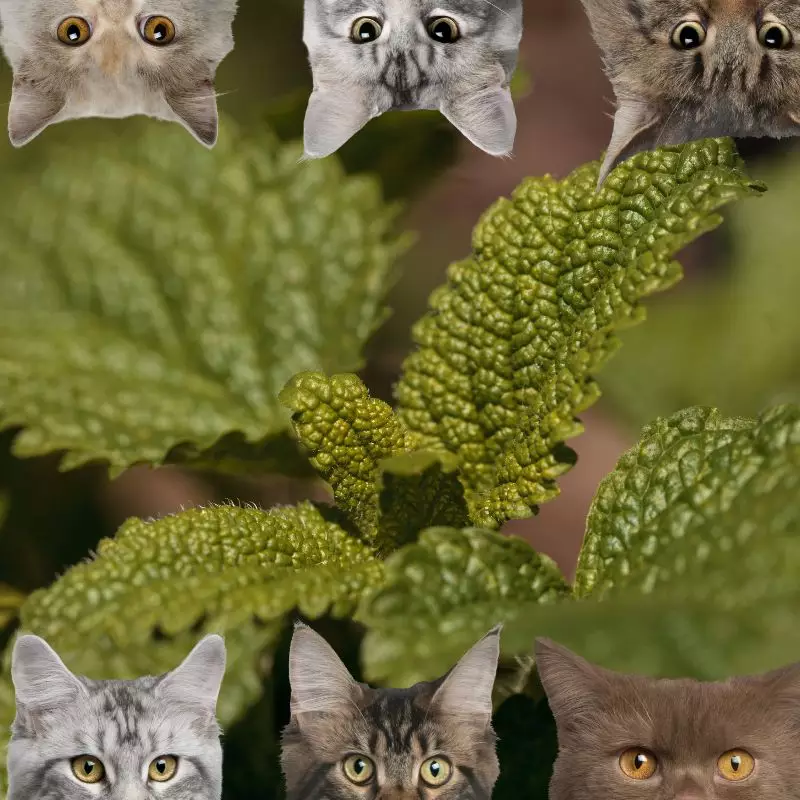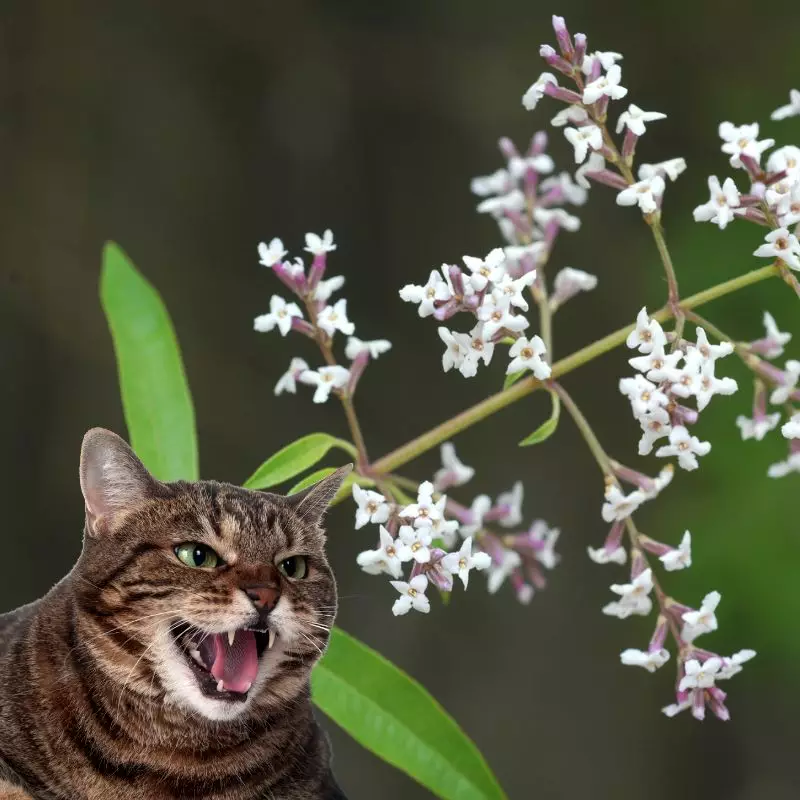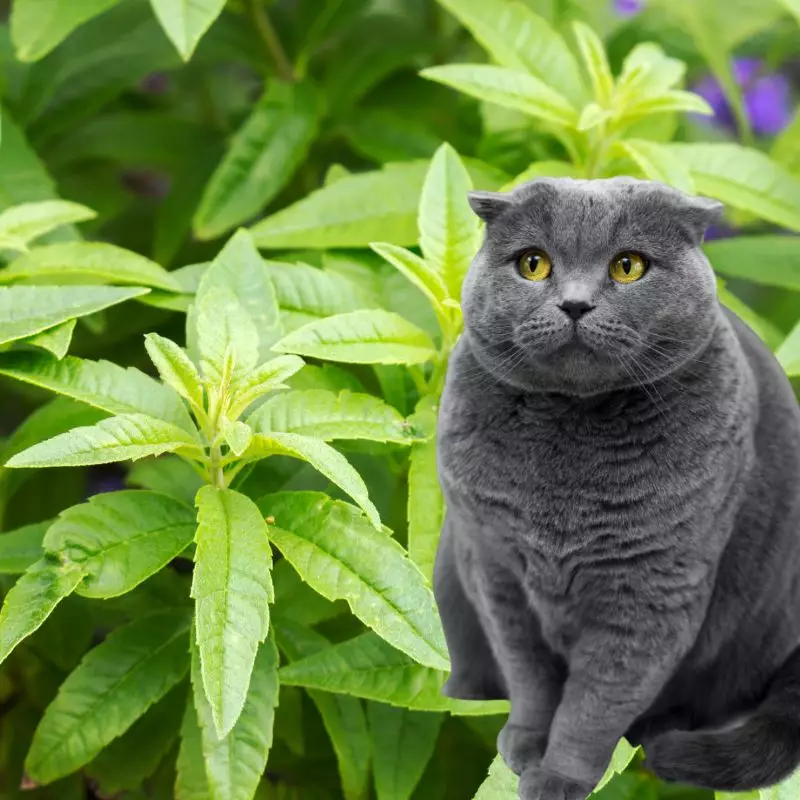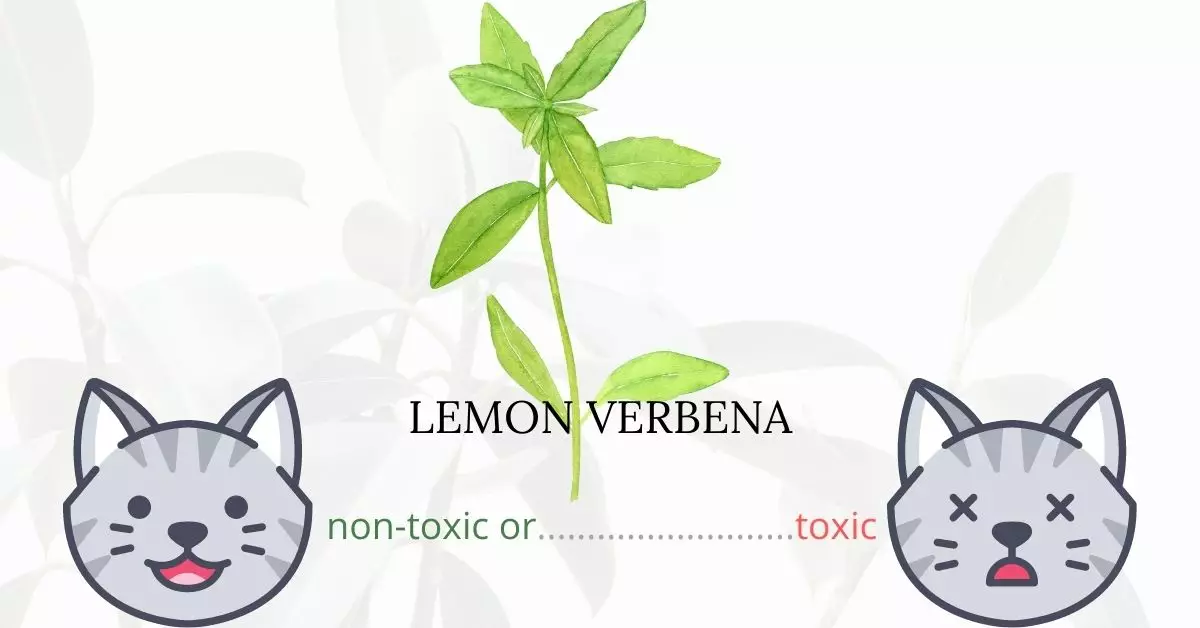Lemon Verbena, also commonly known as Lemon Beebrush, is not typically toxic to cats when consumed in small amounts. However, when ingested in larger quantities, the essential oils present in Lemon Verbena can be difficult for felines to digest, potentially leading to stomach upset, colic, and other gastrointestinal symptoms.
This article was crafted in collaboration with a team of experienced DVMs (doctors of veterinary medicine). Their invaluable insights and expertise ensure that we provide accurate, up-to-date, and comprehensive information on the potential risks associated with various plants, including Lemon Verbena, and their effects on cats. Additionally, our research incorporates data from high-authority websites such as ASPCA and PetMD to further validate our findings.
Clinical Signs of Lemon Verbena or Lemon Beebrush Poisoning in Cats

While consuming a minimal amount of Lemon Verbena typically does not result in harm, felines that ingest larger portions can experience a range of clinical symptoms due to the presence of essential oils which are not easily digestible for them. These symptoms are a result of the cat’s body trying to expel or react to the foreign substance. Here’s a breakdown of the potential symptoms and their causes:
- Colic: This is a severe, often fluctuating pain in the abdomen that is caused by the spasm of the intestine or other parts of the digestive tract. In the context of Lemon Verbena ingestion, it can be a reaction to the essential oils present in the plant.
- Stomach Upset: General discomfort in the stomach can arise when a cat ingests foreign substances, especially those containing elements they cannot digest easily, like the essential oils in Lemon Verbena.
- Vomiting: Cats may vomit after consuming Lemon Verbena as a natural response of the body trying to eliminate the ingested oils that it recognizes as harmful or undigestible.
- Diarrhea: Similar to vomiting, diarrhea can be the body’s way of expelling the undigested essential oils from the cat’s system.
- Abdominal Pain: The irritation caused by the plant’s oils in the cat’s digestive system can result in noticeable abdominal pain, making the cat more restless or vocal about its discomfort.
- Drooling: Excessive salivation or drooling can be an immediate reaction to the taste or effect of the plant, indicating that it might be causing oral discomfort or initiating a nauseous feeling.
While using Lemon Verbena for culinary purposes in small quantities might not pose a risk, cat owners are advised to err on the side of caution and keep their pets away from the plant to avoid potential health issues. If you observe any of these symptoms in your feline after contact with Lemon Verbena, seeking prompt veterinary attention is recommended.
First Aid and Treatment of Lemon Verbena or Lemon Beebrush Poisoning in Cats

For a better diagnosis, it is always best to consult a veterinarian in any case of poisoning. The vet may give symptomatic and supportive treatment to ease the cat’s pain and discomfort. Inducing vomit, giving activated charcoal, performing gastric lavage, and intravenous fluid therapy are some of the typical treatments that veterinarians provide to cats suffering from lemon verbena poisoning.
Recovery from Lemon Verbena or Lemon Beebrush Poisoning in Cats

In majority of lemon verbena poisoning cases, cats fully recuperate as soon as the symptoms subside. After treatment, make sure to ask your veterinarian if there are any post-treatment care that you should provide your cat once you are at home.
Prevention of Lemon Verbena or Lemon Beebrush Poisoning in Cats
Avoid growing lemon verbenas at home. If your cats came into contact with a lemon verbena shrub outdoors, it is best to keep them engaged and active inside your home to prevent them from getting bored and lessen the chance of straying away.
If you love plants but have cats at home, check out these lists:





